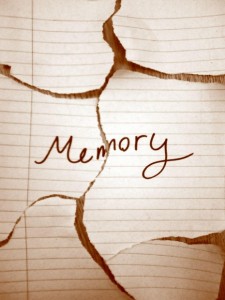This is the second part of a two-part post regarding the survey of 50-75 year olds I conducted in 2013, with responses from 907 people. These results will be presented in more depth in a poster session at the Aging in America Conference this March in San Diego, sponsored by the American Society on Aging (ASA).
When asked to rate their memory, 84% of the respondents rated their short-term memory as “Good” or “Excellent” and 81% gave the same rating to their long-term memory. However, 60% reported that their ability to remember things had become “Somewhat worse” over the past five years. When asked about their ability to maintain attention, 70% indicated that they have experienced “No change.” Thinking or processing speed was self-assessed as being “Somewhat worse” by 40% of the respondents, and 35% indicated that their ability to keep track of what they are doing, even if interrupted, is “Somewhat worse.” There were no differences on ratings of cognitive function between boomers and the older group, or between genders.
When asked where they have learned about brain health, most respondents (73%) selected “Books, newspapers or magazines;” 44% and 42%, respectively, have obtained this information from the Internet and television. When asked where they would most like to learn about strategies or behaviors that could keep their brain healthy as they age,
- 67% selected books and magazines
- 64% selected listening to a speaker or attending a program
- 56% selected television
- 39% selected an internet program/webinar
In conclusion, it is evident from the survey responses that persons in midlife and early older adulthood are concerned about their brain health and appear to be knowledgeable about some lifestyle behaviors that contribute to it. They recognize the importance of physical activity/exercise and diet, as well as mental and social stimulation and the need to avoid tobacco. Their level of engagement in those behaviors, however, is not comparable to the importance with which they regard those behaviors (with the exception of avoiding tobacco).
Based on the sample surveyed, more people in this age group appear to know about activities important to brain health than a somewhat similar sample polled in 2006 (ASA-MetLife Foundation, 2006); this suggests that information about this topic is more widely available today than it may have been seven to eight years ago. Another difference is that 72% of the MetLife poll respondents said they would seek information about brain health from a medical professional but only 31% of the respondents to the present survey selected talking to their doctor as a way to obtain this information (ASA-MetLife Foundation, 2006), and instead selected media sources. This, too, suggests that today’s boomers and older adults believe information about brain health is more prevalent and accessible, especially through books and magazine articles. Findings from the present survey also indicate that programs at libraries and other venues featuring speakers on brain health would be of interest to this population. Both the ASA-MetLife poll (2006) and this survey revealed that knowing what lifestyle behaviors may impact brain health does not necessarily translate into adopting those behaviors. To postpone and/or prevent cognitive decline, it is imperative to make available to this age demographic and younger populations information about lifestyle practices research is showing to be beneficial for cognitive health. It is also vital to find ways to motivate the pubic to engage in those practices.
